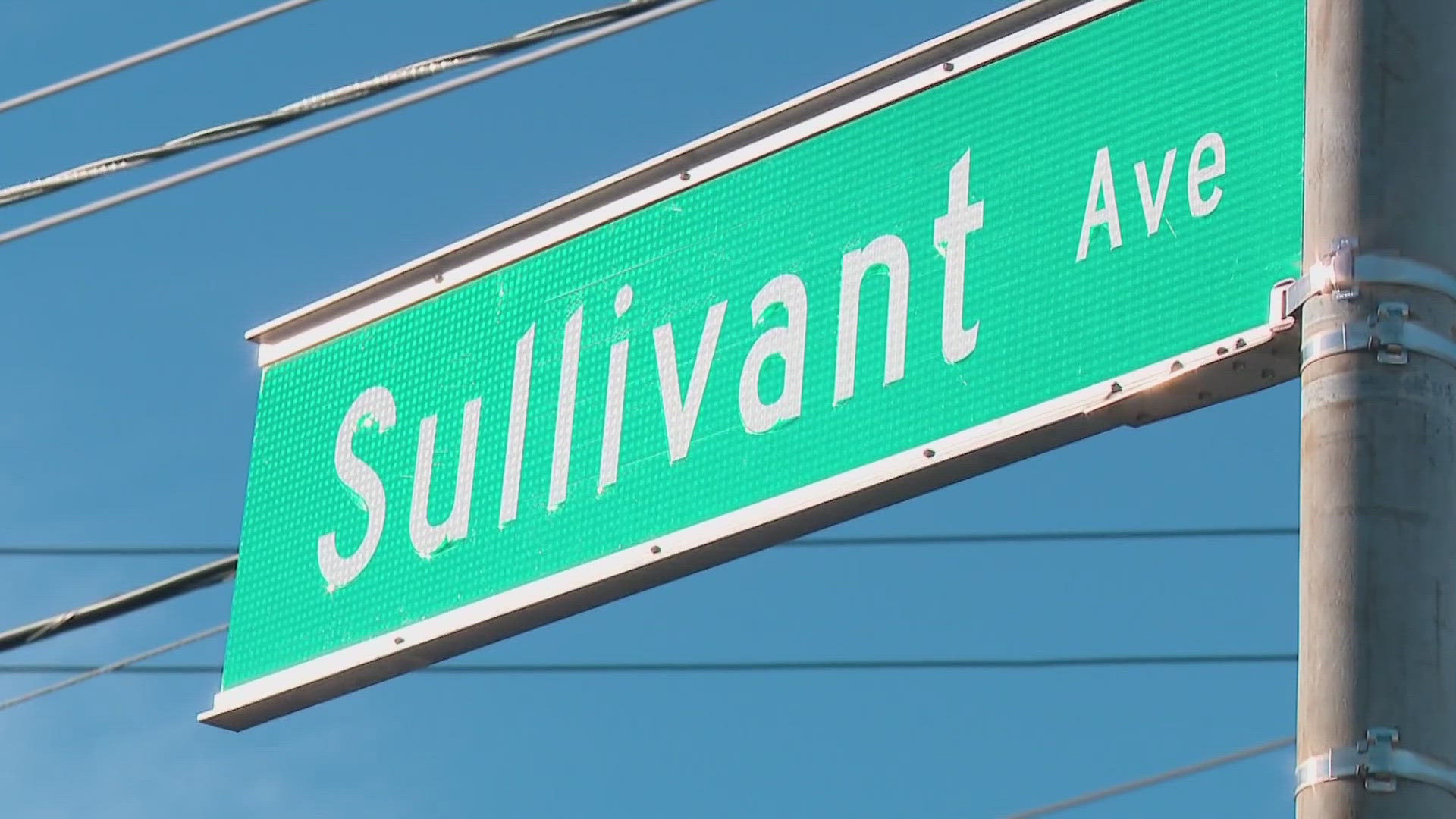COLUMBUS, Ohio — Medical supplies aren't something Esther Flores can afford to run out of these days.
That's because she's treating more festering wounds — too graphic to show fully on-air or online.
"Basically, it's a public health crisis," she said.
She said more often than not they're tied to a drug called Xylazine. It's known on the streets as "tranq."
"When you inject it, it actually starts destroying that blood vessel," she said.
Flores runs a drop-in center called 1DivineLine2Health in the Hilltop. The goal is to provide medical care for the women often seen working on Sullivant Avenue.
"What's the commonality as to why they're out there in the first place?" asked 10 Investigates reporter Rochelle Alleyne.
"Drugs, opiates," said Flores.
Flores added that addiction can lead these women to trade sex for money or drugs—themselves—or to something even darker.
"The new human trafficker is a drug trafficker," she said, "She performs sexually so she can go ahead and get her pill."
Sullivant Avenue is what Flores calls a "hot zone" for these issues.
According to Franklin County court records, over the last six years, Columbus police issued 2,136 arrests or citations for crimes involving prostitution.
10 Investigates found that 911 of those incidents happened on or around Sullivant Avenue.
"Where does the city and city leaders—where do they fall into this conversation when it comes to responsibility?" asked 10 Investigates.
"They're responsible," said Flores.
"In what way?" 10 Investigates asked.
"In what way? In many ways! I've been a huge advocate about drop-in centers. What about if we had drop-in centers in the hot zone, in the red-light districts? At the appropriate time, you know, like we're the only ones open in the evening," said Flores.
Melissa Green is the city councilperson who represents the Hilltop. She's also a social worker.
"We know we can't arrest our way out of these issues," she said.
10TV took Flores' concerns to her.
She said many of the people seen struggling are in the gap between knowing they have a problem and being ready and able to do something about it.
"We have to invest in opportunities for people to get into treatment, you know, when you are ready to go into a treatment program, you oftentimes need to check yourself in before 7:30 on a Tuesday in order to get an intake appointment. These systems weren't created to serve the people that they're trying to serve," said Green.
Outside of investing in more treatment centers, Green added that they're running into another roadblock
"We also have significant challenges with [the] workforce. We don't have enough people to serve the people that we have are experiencing hardship," she said.
It's change that Flores knows won't come overnight.
So in the meantime, she's focused on feeding and supporting the women and their families-- and working to change the stigma often associated with their struggle.
"We need to look at things more through the lens of compassion versus pointing a finger," she said.

